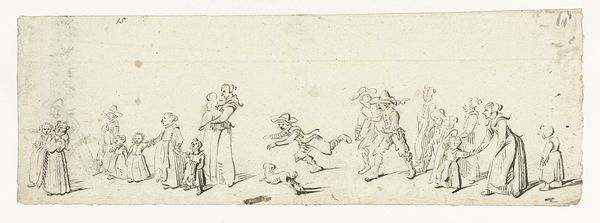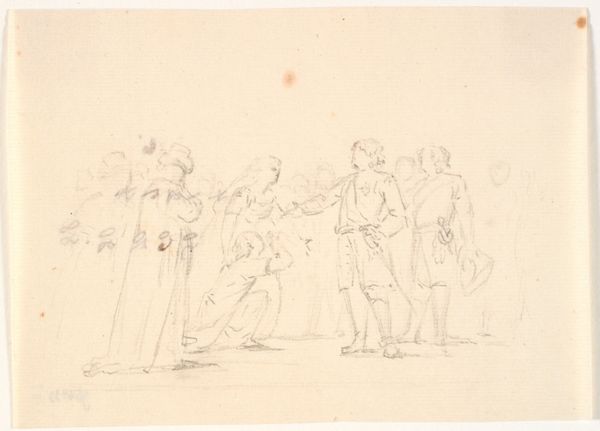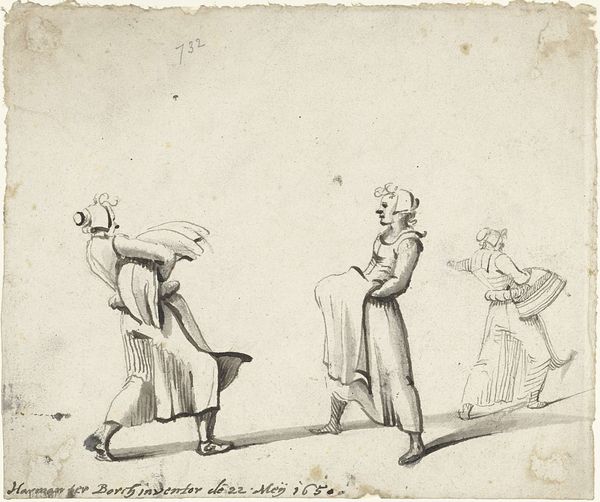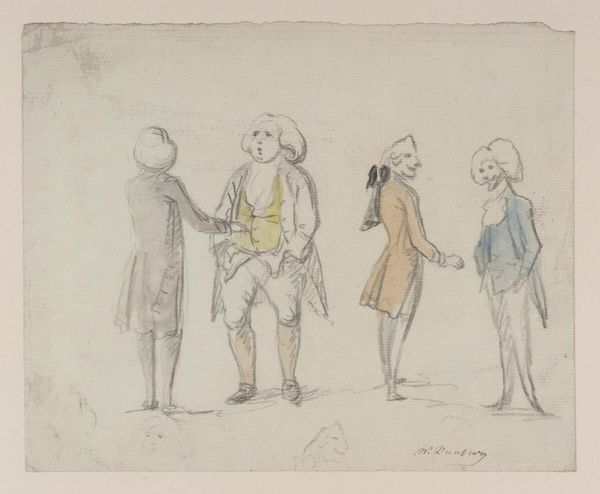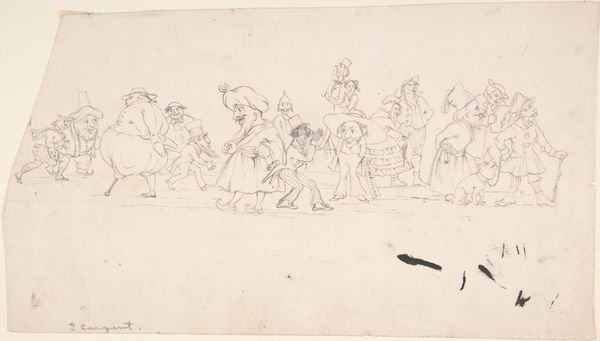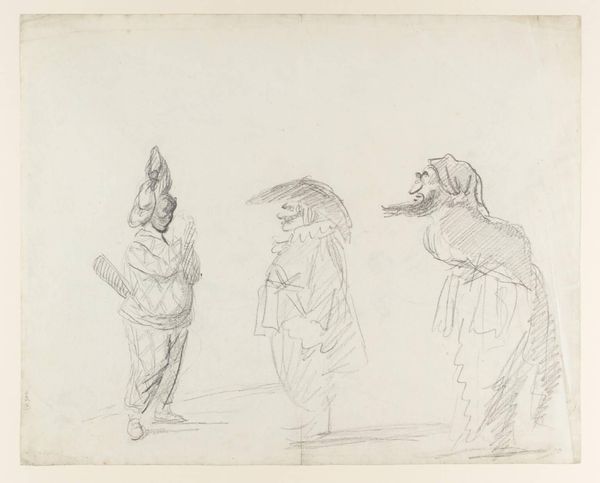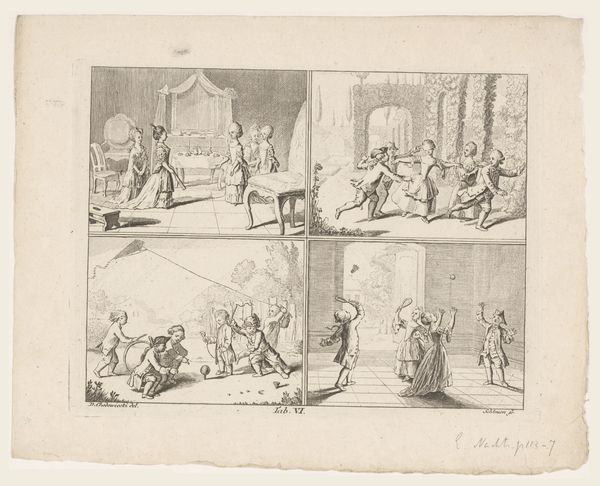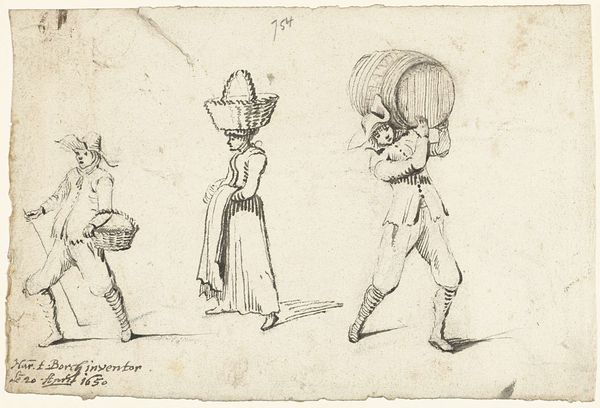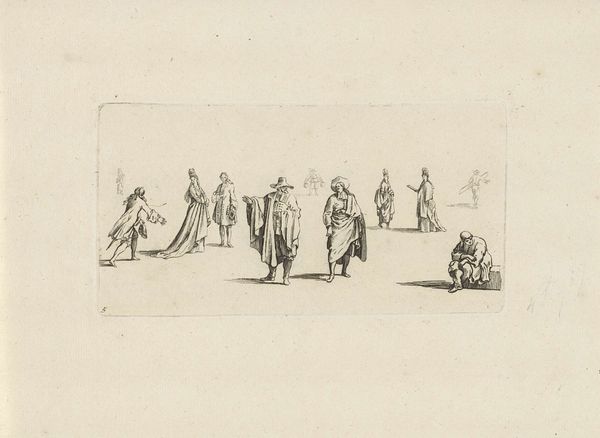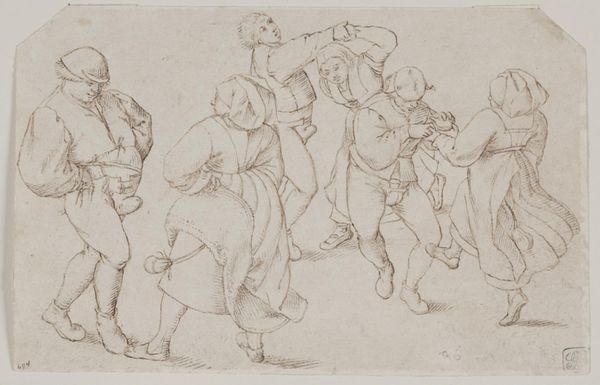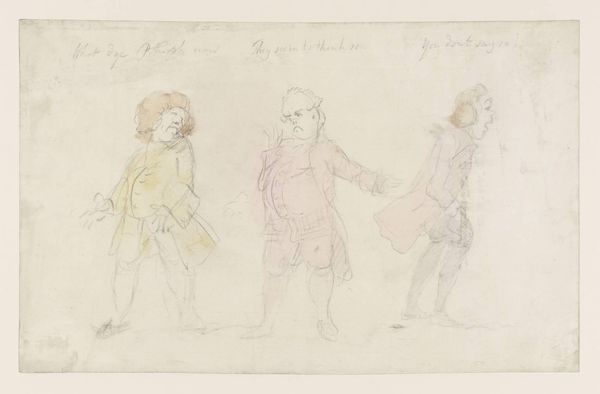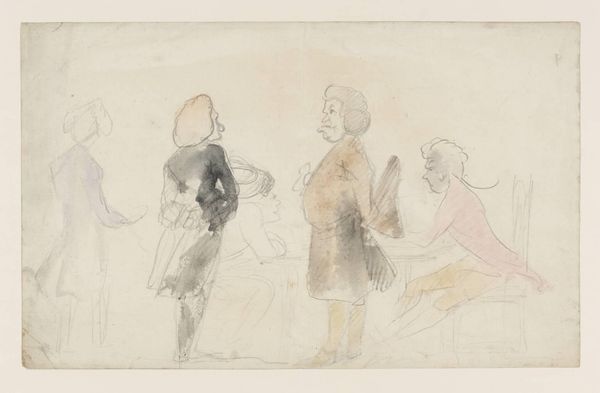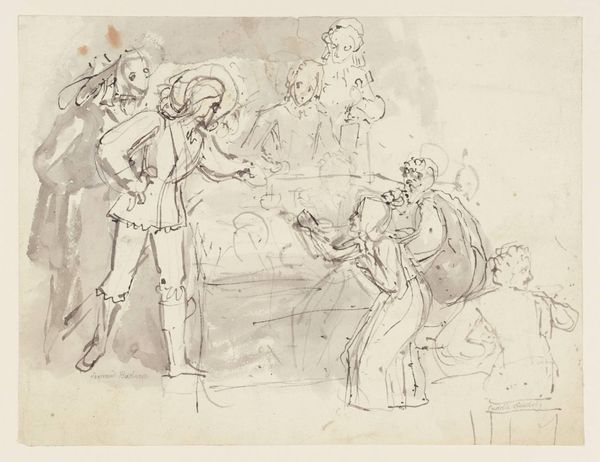
Dimensions: support: 238 x 370 mm
Copyright: CC-BY-NC-ND 4.0 DEED, Photo: Tate
Curator: Henry William Bunbury’s "The Longways Dance" feels like a fleeting glimpse into another era. It’s all sketched lines and suggestions of form; it’s almost as if the dance itself is about to vanish. Editor: There's a playful unease about this sketch. It feels like a satire, a commentary on social norms perhaps, these caricatured figures dancing in a line, almost like puppets on a string. Curator: Definitely! Bunbury was known for his satirical eye. This piece captures a performative aspect of 18th-century society, with the sketchiness adding to the sense of fleeting artificiality. What are your thoughts on the implications of its unfinished look? Editor: The loose sketch style accentuates the artificiality of the social rituals they're engaging in, as if the artist is saying this entire performance is barely held together. Curator: Exactly! It reminds me how much societal expectations can shape even our most seemingly joyful moments. It's a dance, yes, but who truly feels free? Editor: Precisely, it's like a visual representation of the social constraints of the time. It's a dance of conformity, where individuality is suppressed in the name of social acceptance. Curator: A powerful reflection, indeed. It's a reminder that what seems lighthearted can also carry weighty social commentary.
Comments
tate 9 months ago
⋮
http://www.tate.org.uk/art/artworks/bunbury-the-longways-dance-t09495
Join the conversation
Join millions of artists and users on Artera today and experience the ultimate creative platform.
tate 9 months ago
⋮
This drawing may have been made as a preliminary sketch for Bunbury's celebrated series of prints, A Long Minuet as Danced at Bath, published in 1787. The finished engravings were printed on a strip five feet long, showing a series of dancing couples in a variety of attitudes and expressions, both elegant and ungainly. Bunbury's inventive strip designs were copied and imitated by other caricaturists. Because of their long format and narrative element they have been viewed as a forerunner of the modern comic strip. Gallery label, September 2004
